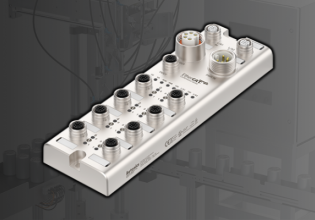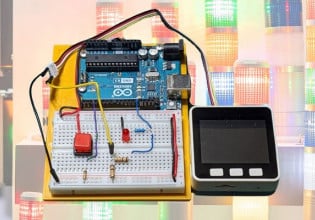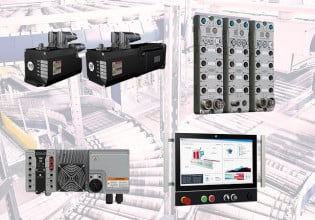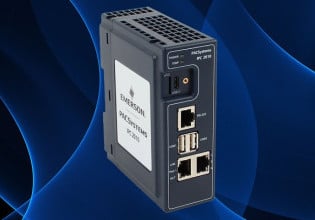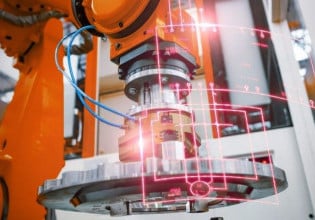Is It Time to Upgrade Your Control System?
This article discusses how to successfully research and replace control systems and its components.
Defining the typical lifespan of a control system is a difficult task. There are many factors to consider. Each plant or facility has different needs, and owners, operators, and managers can have distinctive expectations. Perception plays a major role in determining if it is time to replace a control system or not.
How Do You Know When to Upgrade a Control System?
One may perceive the system as operating just fine, while others, usually those in the thick of things, can have a totally different opinion. Poor installations and maintenance neglect can reduce the perceived lifespan of a system. Good control systems designed and installed well can last for 20-30 years.
Regardless of its age, owners and users of a solid control system will even find ways to keep the current system. Granted, portions of a system, such as computers, will need to be replaced, typically every 5-6 years. But, the actual hardware of a good control system should stand the test of time and can last for at least 20 years.
The software used to interface with the control system is the subject of another article all to itself but is worth briefly mentioning here. Most industrial control systems utilizing a programmable logic controller (PLC) and a human-machine interface (HMI) usually run on one operating system, such as Microsoft Windows. Microsoft, on average, comes out with a new version of Windows every three to four years.
When PLC and HMI software suppliers don’t keep their software compatible with the latest version of Windows, this can cause some difficulties and force users to switch versions of PLC programming or HMI software many years before they need to. Sometimes, this can take little effort, but it can also be very cumbersome, depending on how well the manufacturer has thought through this process and how many versions have gone by since the user has updated the software.
Researching and Selecting Control Systems
There are many factors to consider when choosing a new control system, starting with the current control system. This may be the single most contributing factor in the decision you make for a replacement control system. If you are happy with the old system and the company that supports it, chances are, you will look to that same company for a newer solution. However, if you are not happy with the old system or the technical support from the manufacturer, you might not consider them for your new control system. This is very similar to the relationship many people have with their favorite automobile manufacturer and dealer.
Some of the other factors to consider when selecting a new controls system include:
- Standardization
- Scalability
- Personal experience/in-house expertise
- Local support
- Longevity
- Features
- Ease of use
- Cost/budget
If you have other areas in your facility or within a fleet of plants with existing control systems, you may want to standardize across your facility or fleet with the same control system. That is: if you are satisfied with the current control system.
Having a multitude of different control systems manufacturers on one site can cause many issues. It increases costs associated with maintaining spare parts for multiple manufacturers and multiple programming tools, such as software and cables. There are increased training requirements or a lack of training on one system over the other when multiple control systems are present on one site.
The size of your control system and its future needs will determine how scalable your new control system should be. Many PLC manufacturers offer several families of controllers or systems, each designed for a certain control system size. Some control systems let you seamlessly mix the families to provide more flexibility. You will want to pick a control system with a product line that fits your present and future growth potential.

Figure 1. Rockwell’s Allen-Bradley Micro800 controllers. Image used courtesy of Rockwell Automation
Your personal experience or other individuals within your facility’s personal experience with one control system over another will undoubtedly sway your opinion on a new control system preference. If multiple users service the new control system, you will want to get everyone’s input and weigh it equally before selecting the new control system.
Local support can play a large role in maintaining and supporting your control system at the PLC control system level. Allen-Bradley, for example, supports their product by region, and the local representative can provide essential services, such as spare parts inventory, training, technical advice, and troubleshooting help. In addition to the local representative, you may need the help of local system integrators and contractors familiar with the control system you choose, especially if your expertise or workforce on-site is scarce.
What to Consider Before Upgrading a Control System
Longevity
Consider the average life cycle or longevity of the manufacturer’s products and how they handle the obsolescence of their products when selecting a new control system. Many products take years to develop, and most manufacturers’ goal is to have a product that stands the test of time. But, advances in technology sometimes drive a product into retirement well before the manufacturer intended it to. How the manufacturer handles these transitions can save you from prematurely replacing your entire control system.
Features
Some features are more important to one user than to another, but it is important to define these requirements as you start researching your next control system. If you have a clear list of features that you absolutely must have, along with features that you want or may need in the future, use this list to start checking off the boxes of your new control system.
Many of the largest control system manufacturers have a lot of features in common, which may make this part of your decision difficult. Specialty input/output cards and communications options are two features you may be interested in, but there are many others that each user may want to consider when choosing the right control system for your plant or facility.
Ease of Use
Knowing your target users and their capabilities is important in the next category to consider, which is ease of use. Some systems are very intuitive and made for the average user, while some systems may require more training or instruction to get started.

Figure 2. An electrical terminal in junction box and service by a technician or engineer. The electrical device is installed in the control panel for the support program and control function by a PLC.
Personal Experience
If you have users experienced with one system already, this might unfairly sway your decision without fully exploring other systems that might be more suited for your facility in the long run. If you can arrange demonstrations by the local manufacturer’s representatives for your top two or three choices, this may be a fair way to evaluate control systems that you might not be as familiar with. Some may even provide you with demo software and hardware to use during an evaluation period.
Cost
Unfortunately, everything has a cost. Therefore, the budget will likely affect your choices and the number of features you may be able to afford in the new control system. The budget may also determine how you will replace the control system (i.e., all at once or in phases). Settling on a budget upfront will keep things in perspective and help guide the next phase: design and planning.
There are many things to consider when choosing when to replace and with what to replace your existing control system. The items listed above are a good start, but certainly not all-inclusive. Specialty systems may warrant further categories and subjects to consider.
Hopefully, this information will provide a thorough overview of some items to consider if you are in the market for a new system. In the end, no matter what control system you choose, the next phase will be critical in the success of your decision. Check back for the second half of this article, which will cover tips and recommendations for the design, planning, and implementation phase of a control system replacement project.

